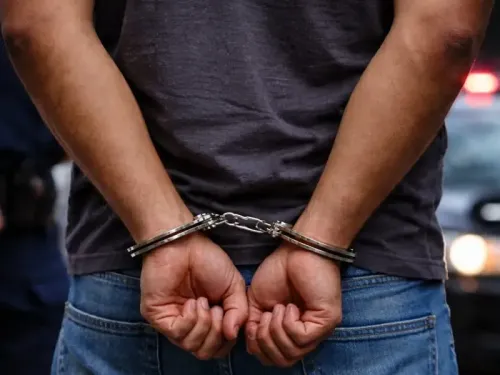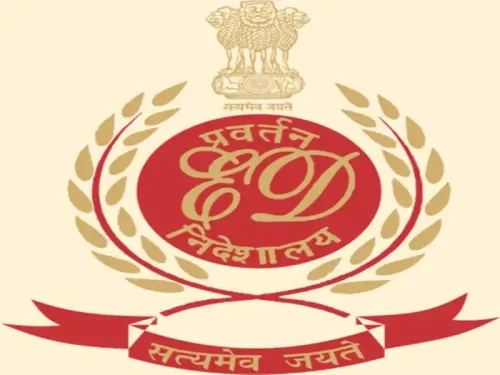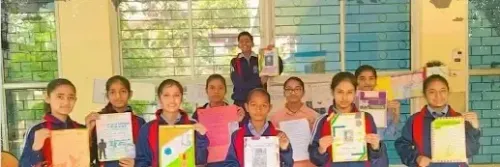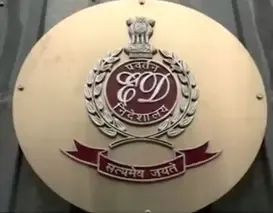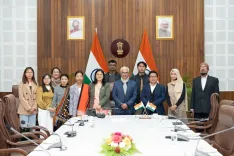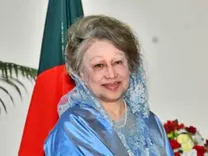How Did a ‘Chaiwala’ Become PM Thanks to the Constitution?
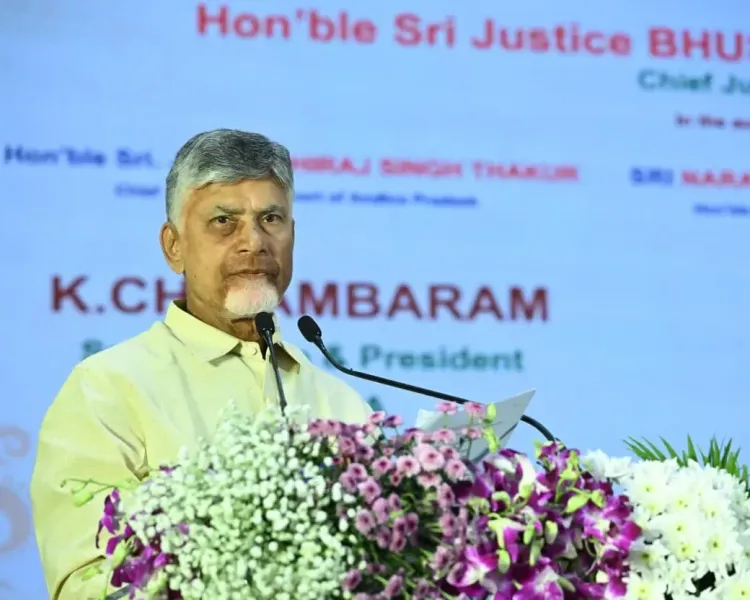
Synopsis
Key Takeaways
- The Indian Constitution empowers individuals from diverse backgrounds.
- Equality is a fundamental principle that needs to be upheld in society.
- Judiciary plays a crucial role in maintaining democracy.
- India's youth are a significant asset for the country's future.
- Public policies are key to achieving social and economic equality.
Amaravati, Nov 16 (NationPress) The Chief Minister of Andhra Pradesh, N. Chandrababu Naidu, remarked on Sunday that it is the Indian Constitution that has enabled a ‘chaiwala’ to ascend to the role of Prime Minister.
“The fact that Narendra Modi, who began his journey as a chaiwala, is now the Prime Minister is a testament to the Indian Constitution,” he stated during a conference commemorating 75 years of this foundational document, organized by the Andhra Pradesh High Court Advocates Association.
Chandrababu Naidu, who leads the Telugu Desam Party (TDP), expressed admiration for Narendra Modi, asserting that he is committed to making India the preeminent nation globally.
Among those who spoke at the conference were Chief Justice of India, Justice B. R. Gavai, and Chief Justice of the Andhra Pradesh High Court, Dheeraj Singh Thakur.
CM Naidu pointed out that Chief Justice Gavai also hails from Amaravati in Maharashtra.
He praised Justice Gavai for his humility despite his prestigious position, highlighting that he consistently promotes the principle of equality.
“CJI Justice Gavai is a compassionate individual. He has rendered significant judgments that will be cherished by the populace,” he remarked.
“I am fulfilling my responsibilities as Chief Minister, while Justice Gavai serves as CJI, and Dheeraj Singh Thakur holds the position of Andhra Pradesh CJ, all due to the Constitutional framework,” he added.
CM Naidu observed that following recent reforms, there has been a shift in public mindset.
“Many nations are grappling with various issues stemming from a shortage of youth, but India is fortunate in this regard. Our country possesses a vast pool of human resources,” he emphasized.
He expressed optimism that by the year 2047, India will have a significant global presence.
Highlighting the judiciary's crucial role, the Chief Minister stated that societal errors are rectified by the judicial system, which upholds democracy.
“With the rise of social media, everyone is taking on the role of an editor, leading to personal attacks,” he noted while advocating for prioritizing national interests above all.
He remarked that the principle of one person-one vote is a gift from Dr. B. R. Ambedkar, stating, “In some countries, voters are not afforded equal rights. India stands as a nation where there is no disparity in voting rights based on wealth or gender,” he explained.
He stressed the necessity of cultivating a society that embodies both social and economic equality, asserting that public policies are instrumental in realizing this vision.
“This is why I am committed to fostering a society that is healthy, prosperous, and content. I seek cooperation from all towards this goal,” he concluded.


